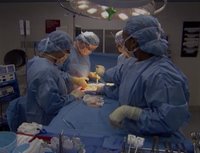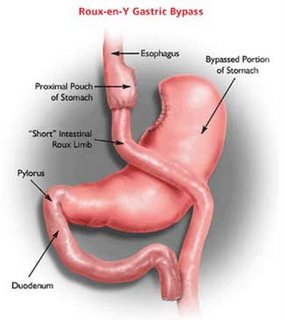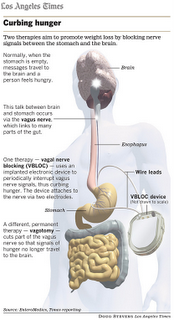Obesity epidemic leading to rise in gastric bypass surgery

Longview, TX
As advancements continue to change the field of medicine, patients continue to benefit. Average life expectancy is still rising, and new medicines are increasing the quality of life for patients with chronic conditions.
In spite of these medical advancements and a cultural shift emphasizing the importance of exercise, one particular area that remains unsettling is the growing number of overweight or obese Americans. Using measured heights and weights, the 2003-2004
National Health and Nutrition Examination Survey (NHANES) reported that 66 percent of American adults are either overweight or obese.
For many obese or overweight Americans, shedding weight has led them to lifestyle changes, such as a healthier diet and a new exercise regimen. Many others go the surgical route, as 177,000 Americans opted for weight loss surgery in 2006 alone. The vast majority of those surgeries were Roux-en-Y gastric bypass surgery. While gastric bypass can seem like a quick fix that enables patients to shed weight almost overnight, the surgery and its ramifications are in fact quite complicated, and should never be looked at as an easy way to drop weight.
What Is Gastric Bypass?
Roughly 80 percent of the weight loss surgeries performed in America this year will be gastric bypass procedures. This is a two-part procedure.
· Stomach pouch: The creation of a stomach pouch is the portion of the procedure many people refer to as “stomach stapling.” During this part of the surgery, the stomach is divided unequally, with one large pouch and one much smaller pouch. After this division, the smaller pouch is sewn or stapled. That pouch can only hold a very small amount of food (roughly one cup). Such a small holding capacity is designed to make people feel full faster, which in turn will make them eat less.
· Bypass: In the second stage the surgeon will employ the Roux-en-Y technique, in which the smaller pouch is disconnected from the first part of the small intestine (the duodenum). The surgeon will then reconnect the stomach to a lower portion of the intestine (the jejunum). Once that has occurred, any food consumed will pass directly from the stomach into this lower portion, where fewer calories and nutrients are absorbed.
What Happens After the Surgery?
While patients can expect to lose weight after gastric bypass surgery, there are negative consequences as well. Though not all patients will experience such consequences, and death is extremely rare (especially when surgery is performed by an experienced gastric bypass surgery), some of the following might occur after surgery.
· Wound infections
· Problems with digestion
· Bleeding
· Ulcers
Those are some of the more common complications after surgery. Some of the less common, though extremely serious and potentially life-threatening, complications include the following.
· Pulmonary embolism (blood clot)
· Serious infection and persistent bleeding
· Heart attack
· Leakage in the surgical connections in the intestines
Because of the nature of the surgery, in which food is re-routed into the jejunum where less nutrients are absorbed, certain health problems can arise as a result. For example, the human body needs a certain amount of iron and calcium to remain healthy. However, the jejunum does absorb these nutrients well, and therefore conditions such as anemia and osteoporosis can arise as a result. Iron and calcium supplements, as well as routine blood tests, can lower the risk of developing such conditions.
Although there can be complications, many gastric bypass patients experience positive results. Weight loss is often dramatic, especially for patients who were considerably overweight.
Another benefit of gastric bypass is that patients who have obesity-related health problems often see improvements in those conditions after surgery. Such conditions include diabetes, sleep apnea and high blood pressure.
While the benefits of gastric bypass surgery are numerous and have helped many a public figure, it’s important to recognize the surgery is not a one-size-fits-all solution, and each case needs to be examined on an individual basis.







